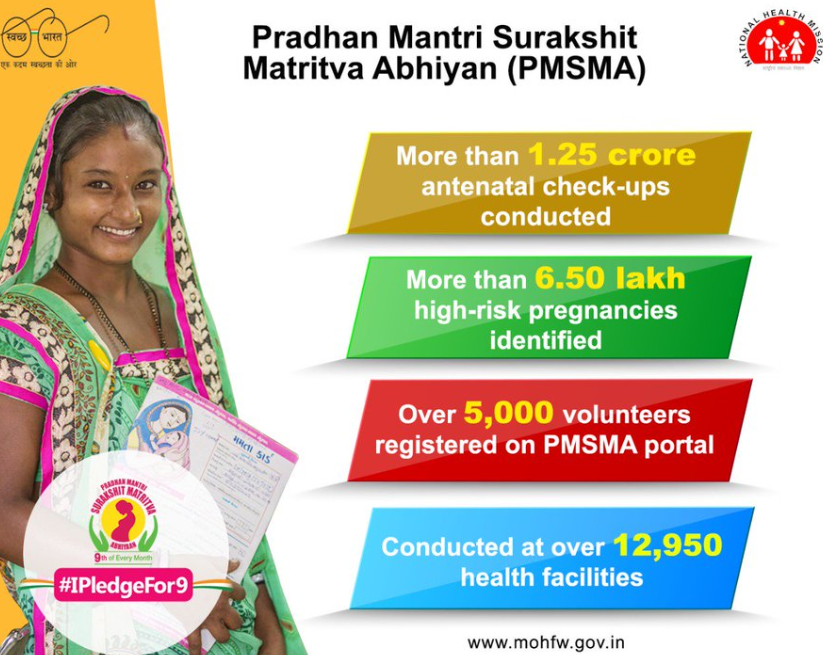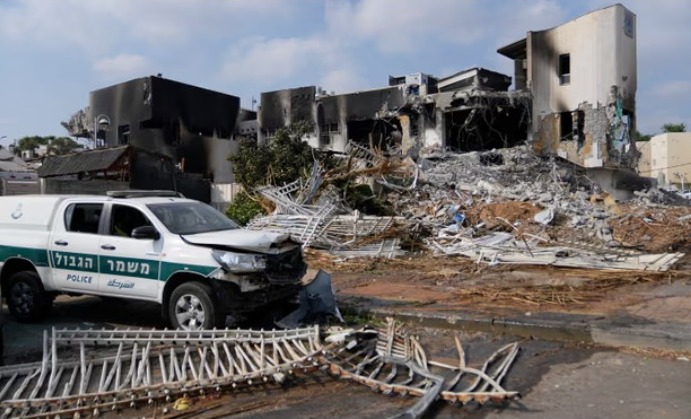The Government of India has enhanced the Pradhan Mantri Surakshit Matritva Abhiyan (PMSMA) to deliver consistent, high-quality antenatal care. Launched to offer free, comprehensive care on the 9th of each month, PMSMA targets all pregnant women in their 2nd and 3rd trimesters at designated public health facilities, provided by qualified Obstetricians and Medical Officers.

Annexure 1 outlines the number of pregnant women who benefited from PMSMA over the past three years.

Tracking high-risk pregnancies (HRP) is critical for early detection of potential complications, allowing for timely interventions that improve both maternal and newborn health outcomes. This proactive approach aims to prevent adverse events and save lives.
To build on PMSMA’s success, the Government has introduced an Extended PMSMA strategy. This new approach ensures quality antenatal care, individualized tracking of high-risk pregnancies, and additional PMSMA sessions beyond the 9th of each month.
The initiative now includes an expanded list of 25 high-risk pregnancy categories, up from the previous 10. This expansion is designed to enhance early identification and management of complications, reduce morbidity and mortality, and ensure institutional deliveries by connecting high-risk cases with the nearest First Referral Unit (FRU). The updated list of 25 high-risk categories can be found in Annexure 2.



